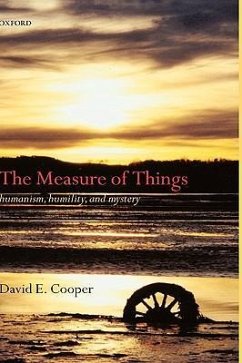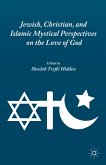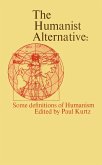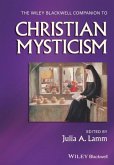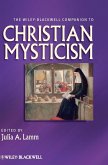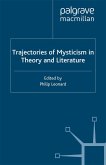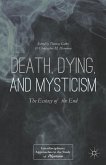Prompted by the pervasive rhetoric of hubris that the rivals direct against one another, he argues, in an original manner, that the rival positions are indeed guilty of lack of humility. Absolutists - whether defenders of 'The Given' or scientific realists - exaggerate our capacity to ascend out of our 'engaged' perspectives to an objective account of the world. Humanists, conversely, exaggerate our capacity to live without a sense of our subjection to a measure independent of our own perspectives. The only escape, Cooper maintains, from the impasse reached when humanism and absolutism are both rejected, lies in a doctrine of mystery. There is a reality independent of 'the human contribution', but it is necessarily ineffable. Drawing in a novel way upon the Buddhist conception of 'emptiness' and Heidegger's later writings, the final chapters defend the notion of mystery, distinguish the doctrine advanced from that of transcendental idealism, and propose that it is only through appreciation of mystery that measure and warrant may be provided for our beliefs and conduct.
David Cooper explores and defends the view that a reality independent of human perspectives is necessarily indescribable, a "mystery." Other views are shown to be hubristic. Humanists, for whom "man is the measure" of reality, exaggerate our capacity to live without the sense of an independent measure. Absolutists, who proclaim our capacity to know an independent reality, exaggerate our cognitive powers. In this highly original book Cooper restores to philosophy a proper appreciation of mystery-that is what provides a measure of our beliefs and conduct.
David Cooper explores and defends the view that a reality independent of human perspectives is necessarily indescribable, a "mystery." Other views are shown to be hubristic. Humanists, for whom "man is the measure" of reality, exaggerate our capacity to live without the sense of an independent measure. Absolutists, who proclaim our capacity to know an independent reality, exaggerate our cognitive powers. In this highly original book Cooper restores to philosophy a proper appreciation of mystery-that is what provides a measure of our beliefs and conduct.

